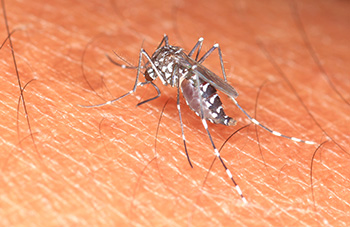Understanding Dengue Fever
Understanding Dengue Fever
Dengue (DEN-gee or DEN-gay) is a viral illness that is spread by mosquitoes. It is also called dengue fever. There are mild and moderate to severe forms of dengue. The mild form is most common. The severe form is called dengue hemorrhagic fever (DHF). Without treatment, DHF may cause death.
What causes dengue?
The virus is spread by Aedes mosquitoes. You can get the virus if you are bitten by an infected mosquito. The mosquitoes transmit the virus by biting a person with dengue and then biting another person. The mosquitos are present throughout the Western hemisphere. Dengue is uncommon in most of the U.S., except Puerto Rico. It is most common in Latin America, Southeast Asia, Africa, and the Pacific Islands.
Symptoms of dengue
Mild dengue infection may have few symptoms. Moderate to severe dengue has 3 phases: febrile, critical, and recovery.
Febrile phase
Symptoms of the febrile phase last 3 to 7 days and include:
Sudden high fever
Skin redness or red patches on the skin
Severe headache
Pain behind the eyes
Severe joint and muscle pain
Nausea
Vomiting
Easy bruising and bleeding
Critical phase
The critical phase usually lasts 2 to 3 days. During this time, body temperature may return to normal. Symptoms of the critical phase include:
Vomiting that won’t stop
Severe pain in the belly (abdomen)
Fluid in the chest and belly
Rapid breathing
Low blood pressure
Bleeding
A person with severe dengue may have trouble breathing, severe bleeding, damage to organs, or dengue shock syndrome. This can be fatal, and is a medical emergency.
Recovery phase
During the recovery phase, there is overall improvement. There may also be a rash and itchy skin. There may be heart and lung problems.
Diagnosing and treating dengue
See your healthcare provider if you have a fever or other symptoms within 2 weeks of returning from travel to an area where dengue occurs. Tell your provider where and when you traveled. Your provider can diagnose dengue fever with a blood test to check for the virus or antibodies in your blood.
If you have dengue fever, your treatment will depend on how severe your illness is. Symptoms are most commonly treated with bed rest and fluids. You may be given acetaminophen to reduce fever and pain. Don’t take aspirin, ibuprofen, or naproxen, as they may increase your risk of bleeding.
Preventing dengue
There is no vaccine for dengue fever. The best protection is to prevent mosquito bites. If you are traveling to an area where dengue fever is a risk:
Use insect repellent that contains 20% to 30% DEET on your skin and clothing
Stay in indoor areas that have screens or air conditioning
Use spray insecticide outdoors
Put a mosquito net around your bed
When to seek medical care
Call your healthcare provider right away if you have:
Severe belly pain
Vomiting that won’t stop
Blood in your vomit
Red patches on your skin
Bleeding from your nose or gums
Black, sticky stools
Pale, cold skin
Trouble breathing
Updated:
October 27, 2017
Sources:
Handbook for Clinical Management of Dengue. World Health Organization.
Reviewed By:
Holloway, Beth Greenblatt, RN, M.Ed.,Lentnek, Arnold, MD
